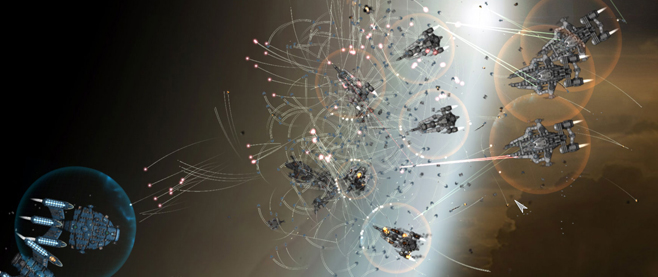Strategic Gaming: History, Brain Bulking, and Hardcore Elitism
If there’s one aspect of gaming that people become enthralled with, it’s beating a challenge. In the earlier days of video gaming, when vast worlds and multiplayer modes were yet to be possible, it was all about beating the game. The likes of Crash Bandicoot, Mario, Space Invaders, and Doom were all built to pose a challenge to gamers.
Now, the strategy genre is what many see as the purest form of gaming to pose a challenge. Of course, in this evolved world of digital games, a game in any genre can pose a challenge, but it’s in strategy that the course to success is strictly to work out how to beat the game.
Here, we’re exploring how strategy is a very helpful form of gaming, and how beating the toughest games out there seems to be a thrill among gamers.
Strategy at the core of gaming

Long before the rise of video gaming, or even arcade gaming, strategy was at the core of so many of the most popular games. In tabletop games, Kriegsspiel proved to be a revolutionary step towards strategic play and wargaming systems, followed by board games like Stratego, Risk, and Diplomacy. Of course, two of the best-known forms of strategic games are chess and blackjack.
Both are considered to be games of high intellect because of the strategies that can be deployed to gain an edge over the person on the other side of the table. With blackjack, it’s all about your method of determining probability and remembering the optimized plays of the blackjack strategy chart in each round. In chess, it’s about getting to grips with concepts to control the board, like Material Count, Pawn Structure, and King Safety.
Brain benefits inherent in strategy gaming
All strategy games, regardless of format, challenge us to think outside of the box, work out ways to solve problems, and repeat processes to continually learn and improve. Beating these tests will, as a result, enhance your brain power – specifically functionality related to processing speed, memory, mood, and problem-solving. Speed tasks and working memory tasks, specifically, were found to see enhanced results from subjects playing strategy games.
Seeking to home in on further results as to whether or not strategy games can test and bulk the mind as other strategic tasks do, one study looked at a comparison between different levels of players of StarCraft and The Sims. Conducted by Dr. Brian Glass, it was found that cognitive flexibility can be trained and improved in a game like StarCraft. Importantly, those on the most complex version performed the best in the cognitive flexibility tasks.
Enjoyment and elitism from hardcore gaming
As noted above, those who can beat more difficult games, particularly those that hinge on strategy, benefit more cognitively. Developing skills in gaming and beating a challenge can be immensely satisfying, and many who do it on the highest difficulties get an additional sense of accomplishment in knowing that so few others could achieve such a feat. A hardcore experience isn’t necessary to enjoy games, but it does offer a goal that a select few will accomplish.
However, with gaming becoming a sub-culture of sorts, ArenaNet senior designer Jennifer Scheurle has identified the community of so-called hardcore gamers as showing elitist behaviors. Apparently, some games being made more accessible can flare up a backlash among those who only want the toughest challenge and to associate with their peers willing to grind away and develop winning strategies. The community is strong, too, coming in en masse to vote Dark Souls the GamesRadar and Golden Joystick Awards’ best video game of all time.
Strategy has underpinned gaming culture for decades, long before video games came along, and now, it continues to drive the greatest challenges and most dedicated communities of gamers.





